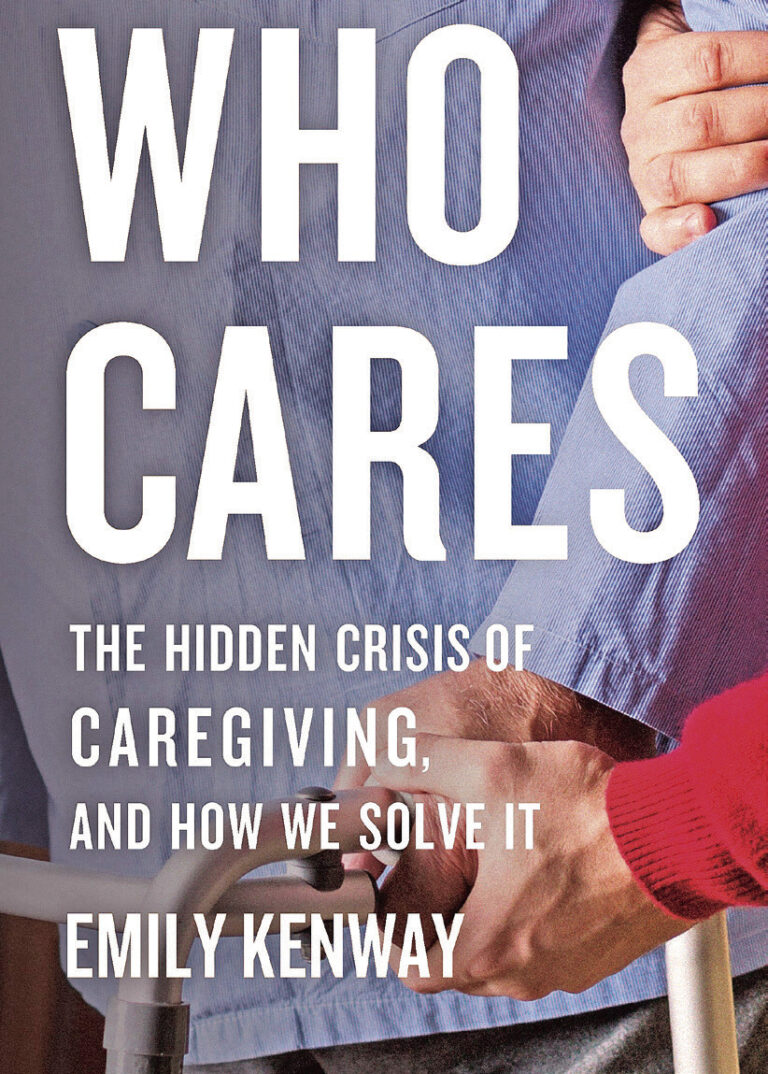It’s awfully dark at 3 a.m., but there you were, wide awake.
You might have heard your name called, but you couldn’t be sure so you lay in bed, waiting, too exhausted to move. If Mom needed you, she’d call once more and you’d tend to her needs then. It’s 3 a.m. but, as in the new book, “Who Cares” by Emily Kenway, there’s no punch-clock in this job you’ve assumed.
For most of her life, Emily Kenway’s mother was a strong, independent woman. She raised Kenway and her sister singlehandedly, she held a great job, and she dreamed of traveling in her retirement. Sadly, she was diagnosed with cancer at about that time; she soon needed a medical advocate and then, help.
Because she was in a position to tackle it, the job fell to Kenway.
It’s no surprise, Kenway says: The vast majority of caregivers of elderly or ill relatives — whether related or not — are women. In this, she points out, there is no “gender equality.” She wonders if it has anything to do with the facts of intimate care and feelings of comfort or embarrassment. She muses about all the assumptions that make people automatically assign a caregiving job to a daughter or sister, even if she’s physically or emotionally unable to handle it, even if she has a successful life and a job she’s reluctant to relinquish. Remember, Kenway says, many caregivers are “essential workers” who don’t get paid.
It’s very frustrating, but Kenway shows how caregivers have found ways to cope.
Having like-minded support is key, but it needn’t be in-person: she and people around the world gather once a week for Zoom groups, in which they discuss issues and offer succor. She says artificial intelligence is making strides in the area of home caregiving, which takes some of the pressure off carers. Caregivers learn to broaden the “conception of kinship.” And in some cases, caregivers have found ways to make government laws work for them … If you cracked open a copy of “Who Cares” and you found it seething with anger, would you be surprised? You shouldn’t be — and author Emily Kenway tells you why.
Once you know — and caregivers already do — you won’t be alarmed to see the clear exhaustion and frustration that line the pages of this book, either. There’s no softening of either status here; Kenway is wide-open and honest with her feelings, which could be comforting to readers who are experiencing the same but can’t say it out loud.
These emotions, it should be noted, are properly aimed: Readers will be relieved to see that they’re directed outward and not at Kenway’s beloved mother. There’s also a list of demands directed at congresspeople and representatives here, in case you want to contact yours.
Absolutely, this book is for any caregiver now, and for readers who understand that they’ll be on the receiving end of it all someday, in all likelihood. “Who Cares” is a warning, and a book to keep you awake at night.
— The Bookworm Sez


